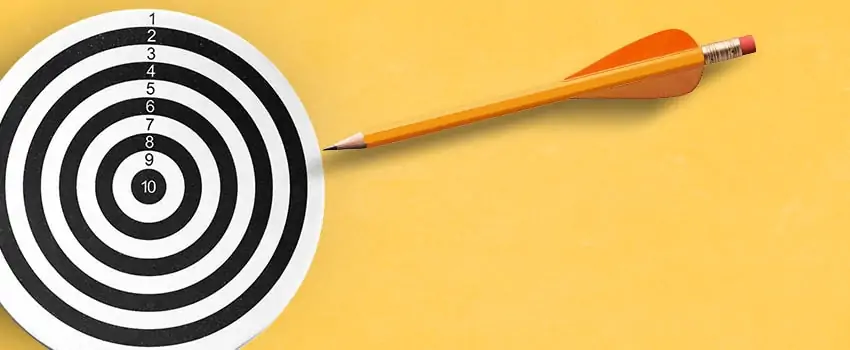Blog
It’s the end of the semester, which means it’s finals season! Whether you have lots of papers to write or tons of tests to take, you feel the pressure to be productive.
And yet, you may find yourself thinking, “I’ll just check my notifications for a minute.” The next thing you know, it’s been five hours, and that study guide you swear you were going to make is non-existent. Yikes!
But don’t worry! With these five strategies, you’ll find yourself with enough time to finish that study guide, run your papers through a spell check, AND check Instagram.
Make a Game Plan
When you have a bunch of test dates and essay deadlines to juggle, it’s easy to feel too overwhelmed to start. By making a game plan ahead of time, you eliminate any concerns you might have about what needs to get done. Therefore, you won’t waste time on figuring out what you need to study or do.
One way to make a game plan is to make a master calendar of key dates (i.e. final exams, essay due dates, etc). Once you have those jotted down, take a close look at each date and determine how many days you’ll need to study, research paper topics, write, prepare, etc. After that, determine what you’re specifically going to do each day. Your calendar will look crowded, but by working out all those key details, you can spend each of those days doing work instead of figuring out what you’re doing.
Give yourself an hour to make your game plan. If you front-load this work now, it’ll be easy to be productive moving forward!
Study With Friends
Studying with friends can be a blessing and a curse. It’s fun to hang out, but it can also be distracting. Here’s a way to ensure that studying with friends is a blessing:
Before you all get down to work, have everyone share what they want to get done during your time together. Be specific so that everyone can hold each other accountable. For example, if you have an essay you need to write, you can say, “I will write two pages by the time we’re done” or “I will read the assigned grammar guides in the first hour, and then begin writing an outline in the second hour.”
Once everyone shares their tasks, come up with a reward that you’ll do together only if everyone gets what he or she said done. If one person doesn’t meet his or her personal goal, then you all don’t get ice cream. It’s harsh, but it’ll motivate you to not be that one person.
Visualize!
Before getting down to business, close your eyes and visualize yourself getting all your work done. Imagine what it’ll be like to be done making that study guide by the end of the day. It feels good, doesn’t it?
Visualization is a powerful tool because it allows you to mentally rehearse what it’ll be like to have a certain experience. By visualizing being productive, you’ll want to recreate what you saw in your mind’s eye in real life. Because you’ve already witnessed yourself get everything done, you’ll know it’s doable and thus you’ll stay on task.
Visualize before the start of every study session. See yourself understanding concepts. See yourself getting through every problem. See yourself being productive.
Use the Pomodoro Technique
The Pomodoro Technique is a great way to manage your time. The technique is simple: determine the task you need to get done, work on it for 25 minutes, and then take a five minute break. Then work on the same (or different) task for another 25 minutes, and then take another five minute break. After two hours, take a longer break (i.e. 20 to 30 minutes).
This technique is helpful because it forces you to rest your brain for at least five minutes in between bursts of productivity. If you work too long on trying to memorize terms or doing practice sets, your brain will burn out. Let yourself take breaks with the Pomodoro Technique!
Plan Your Procrastination
Let’s be honest: you’ll probably procrastinate on studying at some point. That’s okay! What’s awesome about planning your procrastination is that you’re acknowledging that it’ll happen. Though it may seem counterproductive, knowing you’ll procrastinate will actually help with your mindset. Instead of wasting your time feeling guilty, you can give yourself a pat on the back and say, “It was fun to procrastinate; now let’s get back to work!”
There are two ways to plan your procrastination:
- Productive Procrastination
Make a list of ideas, concepts, or formulas that each take five minutes to review. Write them down on individual notecards. Whenever you get tired by the task at hand and feel the itch to procrastinate, simply pick up a notecard and spend five minutes reviewing it. Once you’re done, you’ll feel ready to get back to work AND you’ve just done a bit of studying. Nice work!
- Genuine Procrastination
This is similar to Productive Procrastination, but instead of class material, make notecards of songs, YouTube videos, or apps you like. When you feel like procrastinating, pick a notecard, set a timer for five minutes, and go on Snapchat guilt-free.
Both of these types of procrastination are equally valid. As long as you know which one you’re going to be doing ahead of time, your overall productivity will remain constant.
Try out these five strategies and see which ones work best for you! Now go be productive!
For any paper that needs an MLA format works cited page, APA reference page, or citations in general, try EasyBib.com. You’ll find tools and guides for creating an MLA annotated bibliography, generating a Chicago style citation, building in-text citations in MLA, and more!
